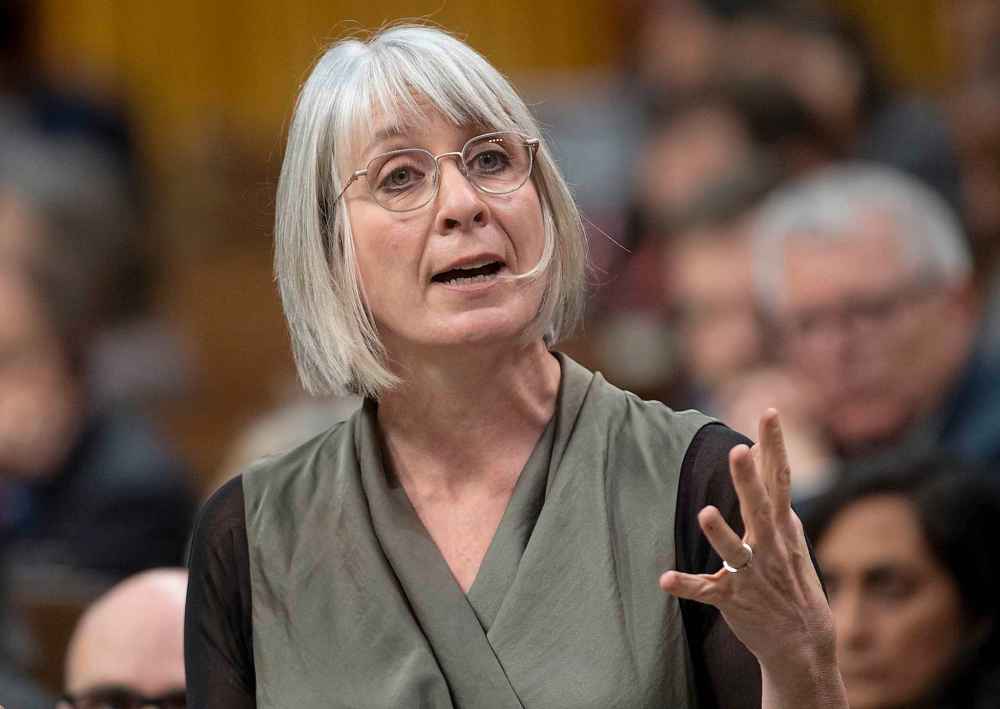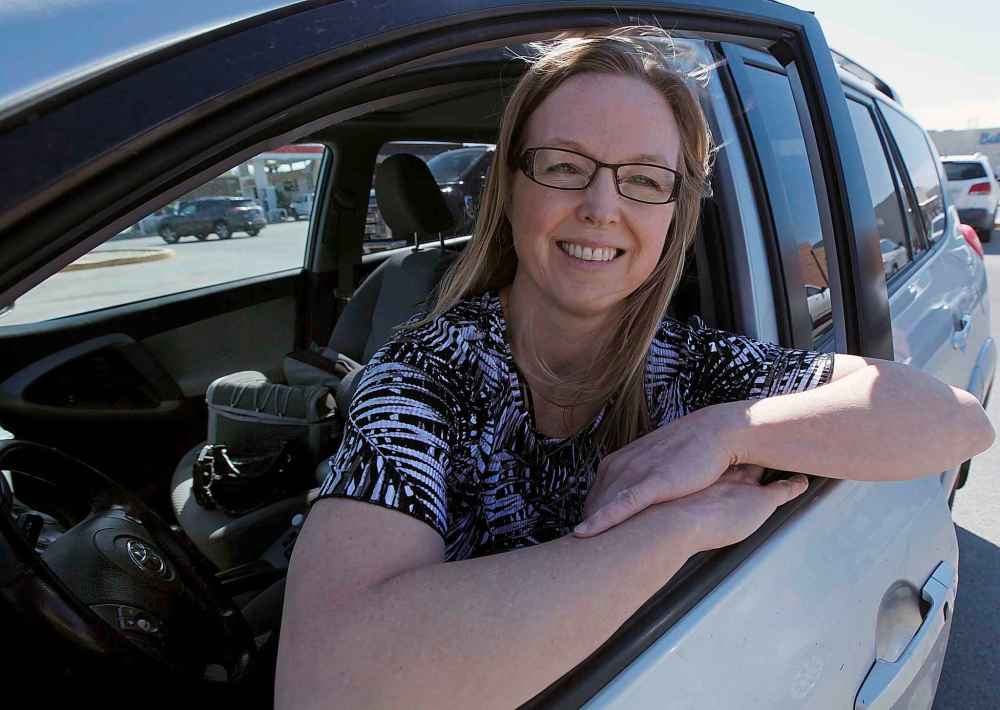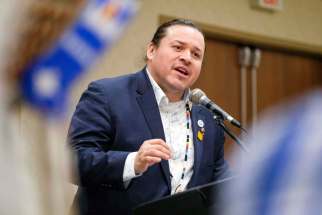Crack down on private health testing or lose some funding, Ottawa tells province
Read this article for free:
or
Already have an account? Log in here »
To continue reading, please subscribe:
Monthly Digital Subscription
$0 for the first 4 weeks*
- Enjoy unlimited reading on winnipegfreepress.com
- Read the E-Edition, our digital replica newspaper
- Access News Break, our award-winning app
- Play interactive puzzles
*No charge for 4 weeks then price increases to the regular rate of $19.00 plus GST every four weeks. Offer available to new and qualified returning subscribers only. Cancel any time.
Monthly Digital Subscription
$4.75/week*
- Enjoy unlimited reading on winnipegfreepress.com
- Read the E-Edition, our digital replica newspaper
- Access News Break, our award-winning app
- Play interactive puzzles
*Billed as $19 plus GST every four weeks. Cancel any time.
To continue reading, please subscribe:
Add Free Press access to your Brandon Sun subscription for only an additional
$1 for the first 4 weeks*
*Your next subscription payment will increase by $1.00 and you will be charged $16.99 plus GST for four weeks. After four weeks, your payment will increase to $23.99 plus GST every four weeks.
Read unlimited articles for free today:
or
Already have an account? Log in here »
Hey there, time traveller!
This article was published 26/02/2020 (2115 days ago), so information in it may no longer be current.
OTTAWA — The Trudeau government is poised to start clawing back some of Manitoba’s health dollars if the province doesn’t crack down on private testing services within a month.
“Our goal is to make sure that we don’t see a degradation of the public health services that Canadians have come to rely on, and that is part of who we are as a country,” federal Health Minister Patty Hajdu told the Free Press Wednesday.
“I’ve let my counterparts know that if they don’t come into compliance with the Canada Health Act, that they will be subject to deductions, as appropriate for the specific infractions.”

The Liberals’ health accord has been a flashpoint between the Pallister and Trudeau governments.
Since 1984, the Canada Health Act (CHA) has governed which services provinces must provide in order to receive federal transfers.
“We have a public health-care system that is designed to make sure that, no matter what jurisdiction you live in, that you have equal access to services that are covered,” Hajdu said.
In the annual CHA report Hajdu tabled Monday in Parliament, Health Canada cited “evidence of residents paying out-of-pocket to secure faster access to diagnostic services,” and revealed that Health Canada asked Manitoba in August 2018, and again last May, to cut down on nurse practitioners offering paid tests.
“Our goal is to make sure that we don’t see a degradation of the public health services that Canadians have come to rely on, and that is part of who we are as a country.”
– Federal Health Minister Patty Hajdu
Nurse practitioners have more advanced training than other nurses, and can perform some tasks and tests normally done by physicians, in which case Manitoba Health pays for the procedure.
The provincial department told Health Canada it would look into that overlap, but felt NPs were compliant with the CHA.
In Monday’s report, Health Canada said that as of April 1, “provinces and territories that permit patients to be charged for these services will be subject to deductions from federal transfers.”
Diane Gudmundson, a nurse practitioner based in Richer, launched a private service in 2017 called NP on Wheels.

The service dispatches four staff members to homes and offices to do things such as swab-testing for strep throat, inserting an IUD or flushing out an ear. The services generally cost at least $60, and are priced based on service, location and time of day.
Gudmundson has become an advocate for other nurse practitioners who want to go private. She argues paid services can offer more comprehensive care to people with complex needs than the province’s walk-in clinics.
Health accord an open wound
OTTAWA — The Trudeau government’s health accord has been a perennial point of conflict with Premier Brian Pallister.
Pallister opposed the deal ever since the Liberals unveiled it in late 2016.
The accord held to the former Harper government’s slowing of transfers: a 3 per cent annual rise, despite an aging population.
OTTAWA — The Trudeau government’s health accord has been a perennial point of conflict with Premier Brian Pallister.
Pallister opposed the deal ever since the Liberals unveiled it in late 2016.
The accord held to the former Harper government’s slowing of transfers: a 3 per cent annual rise, despite an aging population.
Pallister failed in trying to get his counterparts from other provinces to reject the deal. The Liberals sweetened the deal by topping up spending for mental health and home care, which got the Atlantic premiers on board.
Manitoba was the last to ratify the accord, in August 2017. Pallister has since cited the deal in explaining his controversial cutbacks to Winnipeg emergency rooms.
Last December, Pallister said reopening the health accord was his top priority as premier, and he convinced his fellow premiers to request the transfer rise annually by 5.2 per cent, instead of three.
However, the premier’s subsequent meetings with Prime Minister Justin Trudeau have revolved around issues like the Interlake flood-channel outlets.
— Dylan Robertson
She argued low-income people who are housebound ultimately save more in a single home visit than arranging transportation and an attendant to visit a doctor, lab and clinic.
“They really want to feel that they, as a person, really matter, and that they’re more than just a number,” Gudmundson said in a YouTube video.
“I can actually see very clearly the gaps that are there in the system, so there needs to be somebody outside the system.”
Yet the Manitoba Nurses Union argues those gaps stem from provincial health-care cuts.
MNU head Darlene Jackson noted that many nurse practitioners used to work at QuickCare clinics in Winnipeg before the Pallister government closed them.
“I believe there is a bigger role for NPs in our public system; I think they are pathetically, tragically underused,” she said, adding that on-demand NP services effectively privatize what people deem a public right.
Jackson also said Ottawa should push Manitoba to hire more NPs, instead of withholding health transfers.
“I don’t see who that’s going to benefit,” she said.
It’s unclear how much of Manitoba’s $1.5-billion health transfer Ottawa could claw back. Normally, Health Canada bases that amount on how much the province would otherwise have spent. Hajdu’s office said it will share potential clawback amounts in late March.

The office of Manitoba Health Minister Cameron Friesen declined an interview Wednesday. Instead, he boasted of provincial investments in various procedures unrelated to NPs.
“Manitoba remains committed to the principal of universality as enshrined under the Canada Health Act. And our government continues to co-operate with our federal counterparts on a variety of files,” Friesen told the Free Press in an email, citing funding agreements on mental-health services and methamphetamine-addiction treatment.
Hajdu said she intends to press Friesen on the NP issue when the federal and provincial health ministers meet next month.
“There’s always nudging that happens,” Hajdu said. “I’m looking forward to having those continued conversations — but we will take action if necessary,”
From 1995 to 1998, Ottawa withheld $2.4 million of Manitoba’s health transfers, due to user charges at surgical and ophthalmology clinics.
More recently, Health Canada threatened to charge Manitoba if a private MRI clinic became operational, but that project remains in the works.
In April, Ottawa is also planning to reduce transfers to New Brunswick over the closure of an abortion clinic in that province that has garnered national attention.
dylan.robertson@freepress.mb.ca










